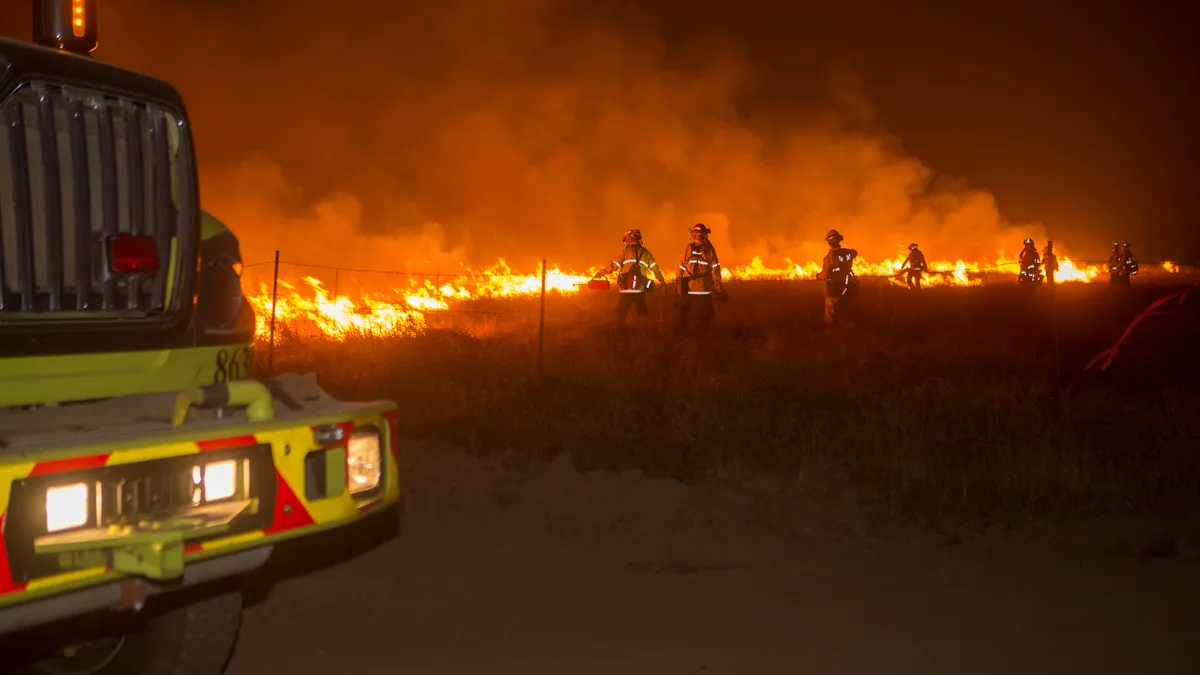Dive Brief:
- Pacific Gas & Electric is considering an $11 billion fund to settle wildfire liabilities, Bloomberg reported Thursday, citing people familiar with the talks.
- The utility has reportedly discussed the idea with lawmakers, along with the law firm Jones Day and investment bank PJT Partners, which advise a group of PG&E equity holders.
- PG&E filed for Chapter 11 bankruptcy protection in January, in part due to liabilities associated with the last two wildfire seasons. In May, the California Department of Forestry and Fire Protection (Cal Fire) concluded the deadly Camp Fire in 2018 was caused, at least in part, by the utility's transmission lines.
Dive Insight:
PG&E is working to address liability claims from the 2017 and 2018 wildfires, though the proposed fund would not include damages resulting from the Tubbs Fire. Cal Fire cleared PG&E of responsibility for that blaze earlier this year.
The proposed fund would include $8 billion for current claims and another $3 billion for possible future claims. It would be be paid for using about $400 million annually in PG&E earnings, according to Bloomberg.
PG&E earlier this year recorded a $10.5 billion charge related to the Camp Fire, which killed 85 people and burned more than 150,000 acres in Butte County in 2018. California regulators recently approved wildfire mitigation plans for the state's electric utilities, including proactive power shutoffs designed as a last-resort tactic in high winds.
As utilities prepare for the next wildfire season, PG&E's bankruptcy could lead to major changes at the company and for all the state's utilities.
Regulators have considered splitting the company into separate gas and electric divisions, and San Francisco is considering buying portions of its grid, in part because the city says distribution service is increasingly expensive.
And the state is considering changes to its strict liability rules for utilities, to help ensure their financial health. A draft report from California's Commission on Catastrophic Wildfire Cost and Recovery recommends changing the state's inverse condemnation rules, or for the legislature to establish a fund for wildfire victims.
The issues impact all California utilities: In April, Southern California Edison asked federal regulators for a higher return on equity due to "dramatic, material changes" to its regulatory and financial conditions, related to wildfire risks.















